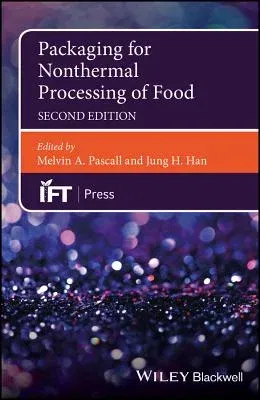A comprehensive review of the many new developments in the growing
food processing and packaging field
Revised and updated for the first time in a decade, this book discusses
packaging implications for recent nonthermal processing technologies and
mild food preservation such as high pressure processing, irradiation,
pulsed electric fields, microwave sterilization, and other hurdle
technologies. It reviews typical nonthermal processes, the
characteristics of food products after nonthermal treatments, and
packaging parameters to preserve the quality and enhance the safety of
the products. In addition, the critical role played by packaging
materials during the development of a new nonthermal processed product,
and how the package is used to make the product attractive to consumers,
is discussed.
Packaging for Nonthermal Processing of Food, Second Edition provides
up to date assessments of consumer attitudes to nonthermal processes and
novel packaging (both in the U.S. and Europe). It offers a brand new
chapter covering smart packaging, including thermal, microbial,
chemical, and light sensing biosensors, radio frequency identification
systems, and self-heating and cooling packaging. There is also a new
chapter providing an overview of packaging laws and regulations in the
United States and Europe.
- Covers the packaging types required for all major nonthermal
technologies, including high pressure processing, pulsed electric
field, irradiation, ohmic heating, and others
- Features a brand new chapter on smart packaging, including biosensors
(thermal-, microbial-, chemical- and light-sensing), radio frequency
identification systems, and self-heating and cooling packaging
- Additional chapters look at the current regulatory scene in the U.S.
and Europe, as well as consumer attitudes to these novel technologies
- Editors and contributors bring a valuable mix of industry and research
experience
Packaging for Nonthermal Processing of Food, Second Edition offers
many benefits to the food industry by providing practical information on
the relationship between new processes and packaging materials, to
academia as a source of fundamental knowledge about packaging science,
and to regulatory agencies as an avenue for acquiring a deeper
understanding of the packaging requirements for new processes.

